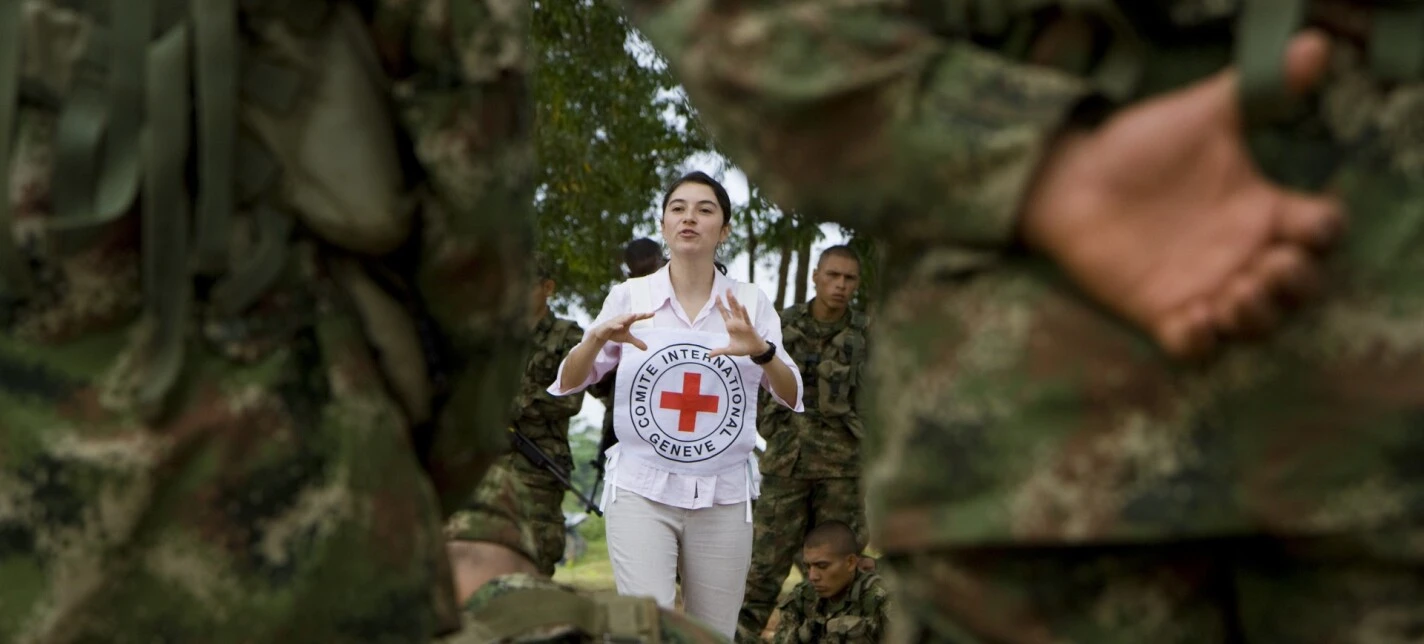International humanitarian law


International humanitarian law — also known as the rules of war — applies to armed conflicts. It protects people who aren’t directly involved and restricts what those involved in armed conflicts can do.
Humanitarian law basics
The rules of war are universal. The Geneva Conventions — the foundation of humanitarian law — have been ratified by all 196 states. Very few international treaties have this level of support.
Everyone fighting a conflict needs to respect humanitarian law – both governmental forces and non-State armed groups. While all these laws apply to international conflicts, only some apply to armed domestic conflicts. Humanitarian law doesn’t regulate whether a State may use force.
The rules of war
- Protect people who aren’t fighting, such as civilians, medical personnel, and aid workers.
- Protect people who can’t fight anymore, like an injured soldier or a detained person.
- Ban targeting civilians – doing so is a war crime.
- Recognise that civilians have the right to be protected from the dangers of war and receive the help they need. Parties to a conflict must do everything they can to avoid harming civilians and their houses – or destroying their means of survival. This includes water sources, crops, and livestock.
- Protect sick and wounded people. They have the right to be cared for, regardless of the side they’re on.
- Protect medical workers, medical vehicles, and hospitals dedicated to humanitarian work. They can’t be attacked.
- Ban torture and degrading treatment of detained people.
- Protect detained people. They have the right to receive food and water and be allowed to communicate with their loved ones.
- Limit the weapons and tactics that can be used in war to avoid unnecessary suffering.
- Ban rape and other forms of sexual violence as a tactic in armed conflicts.
Read our guide for journalists
What are the rules of war?
We are currently preparing a transcript for this video. Thank you for your patience.
The role of New Zealand Red Cross
For humanitarian law to be useful in times of conflict, we need to understand it during times of peace. We promote learning about humanitarian law in New Zealand as well as how people can put it into practice. This way, during armed conflict the impact on people is limited and violations are prevented.
We organise a range of events to raise awareness of humanitarian law. One of the main events each year is a moot competition for law students in New Zealand, who participate in a fictional war crimes trial.
The New Zealand International Humanitarian Law Committee
The Committee supports the Government to educate the public about humanitarian law. They advise the Government on how to share information about humanitarian law and fulfil its obligations. We provide administration support for the Committee.
The Committee includes:
- Ministry of Foreign Affairs and Trade
- New Zealand Defence Force
- New Zealand Police
- academics who specialise in international law, and
- people from humanitarian organisations.
Emblems of protection
The red cross, red crescent, and red crystal are international emblems of protection during armed conflict. In any language the emblems say, 'don't shoot!' – this person, site, vehicle, or equipment isn’t part of the fight.
More information
What is international humanitarian law?
